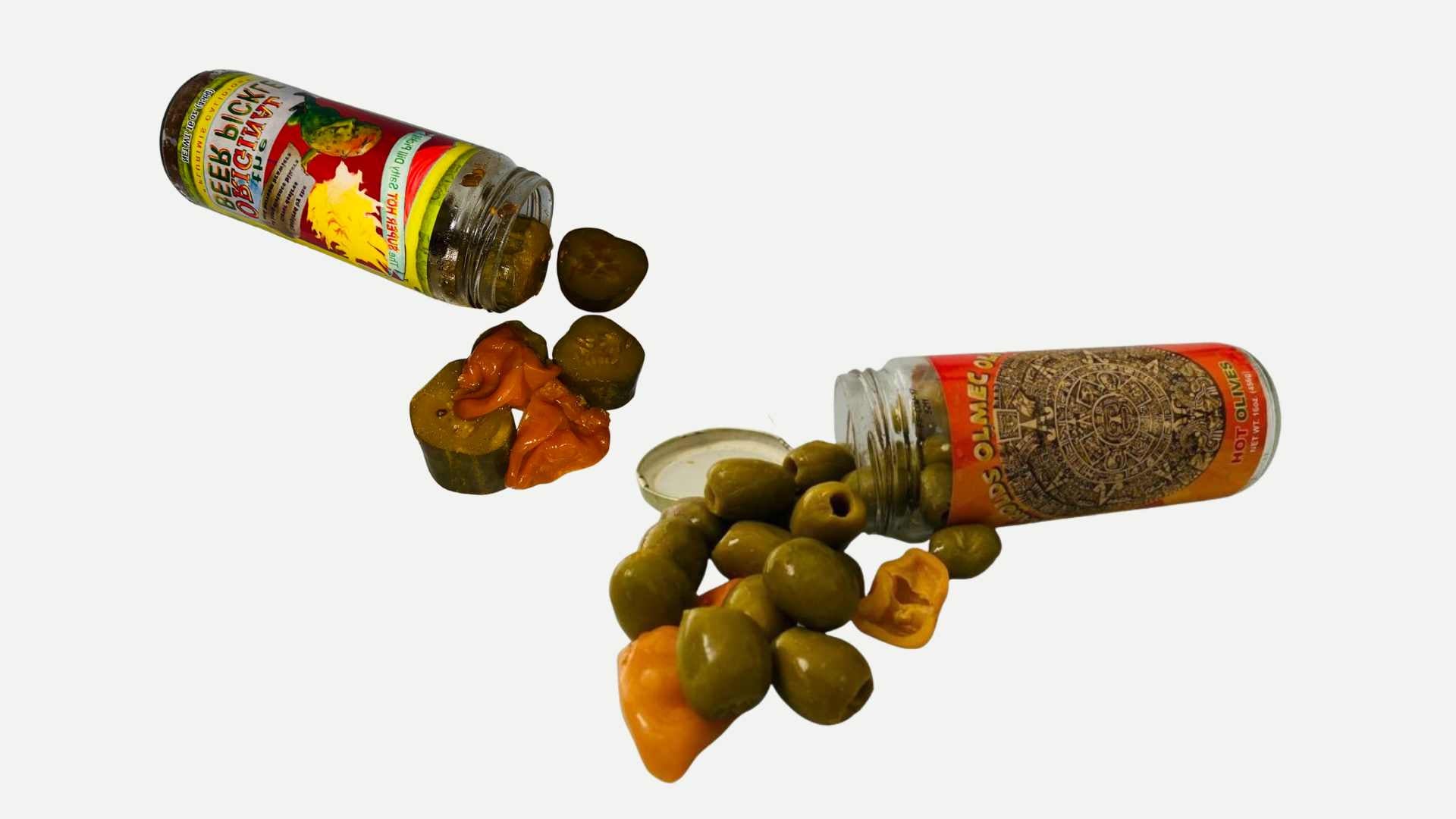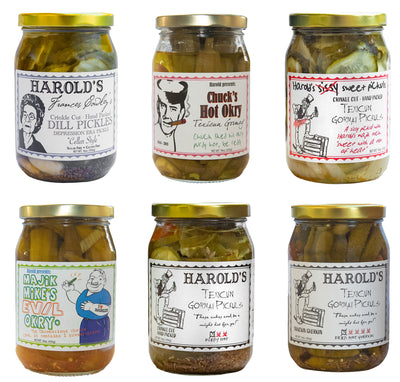Exploring the Vibrant Flavors of Pickled Vegetables
Pickled vegetables are a culinary tradition cherished for centuries in various cultures worldwide. Through preservation, vegetables are transformed into tangy, vibrant, and delicious delights that can enhance the flavor of any dish. The pickling process involves immersing vegetables in a brine or vinegar solution. It allows them to undergo fermentation or marinate in a flavorful liquid. This preservation technique enhances the taste and texture of vegetables and extends their shelf life. The sharpness of vinegar, combined with aromatic herbs and spices, creates a medley of flavors that tantalize the taste buds.
Pickled vegetables also make a great addition to salads, sandwiches, and charcuterie boards. They can even be garnished for cocktails or a healthy snack. They provide a healthy dose of probiotics, contributing to gut health and digestion. Additionally, hot pickles vegetables are a fantastic way to incorporate a variety of vegetables into your diet, ensuring you receive an array of essential vitamins, minerals, and antioxidants.

Pickled vegetables have been preserved in a pickling solution, usually made of vinegar, water, and salt. The vegetables are placed in this solution and left to ferment for a period ranging from a few days to several months, depending on the desired flavor and texture. This process allows the vegetables to ferment, resulting in a tangy and sour flavor profile. The pickling solution not only adds flavor but also acts as a natural preservative, extending the shelf life of the vegetables.
Pickling historyPickling has a rich history dating back thousands of years. The pickling process was developed to preserve vegetables and other perishable food items before the advent of refrigeration. Ancient civilizations, such as the Mesopotamians, Egyptians, and Chinese, practiced pickling as a means of food preservation.
Pickling was essential to world trade and exploration during the Age of Exploration. European explorers like Christopher Columbus relied on pickled foods to sustain their crews during long voyages into unknown lands. This led to the introduction of the pickling tradition from Europe to the New World and beyond.
In many cultures, pickling has become an essential part of culinary traditions, preserving seasonal produce for consumption during the winter months. From pickled cucumbers in Eastern Europe to kimchi in Korea and sauerkraut in Germany, pickling techniques and flavors have been passed down through generations.
The pickling process involves submerging vegetables in a pickling solution, typically made of vinegar, water, salt, and spices. The vegetables can ferment in the solution for a certain period, ranging from a few hours to several weeks, depending on the desired flavor and texture. During fermentation, beneficial bacteria convert the natural sugars in the vegetables into lactic acid, giving them their tangy taste.
Fermentation pickling involves immersing food in a brine solution for several weeks. Allows natural bacteria to break down sugars to produce lactic acid, which helps preserve food. Once the pickling process is complete, the food is stored in sterilized jars or containers and kept at room temperature for several months. Pickling not only preserves food but can also enhance its flavor and texture, making it a popular food preservation and preparation method worldwide.

Pickled vegetables offer several health benefits and add nutrients to the diet. Pickle vegetables improve the digestive system, increase nutrients, are rich in antioxidants, reduce blood sugar, and help manage weight. Pickling helps enhance the gut microbiome by increasing the good bacteria in the gut. These probiotics aid digestion by maintaining a healthy balance of gut bacteria, thus improving overall digestive health.
This pickle can enhance the availability of specific nutrients. The process of pickling aids in the breakdown of complex compounds with greater ease. Many vegetables used for pickling, such as cucumbers, carrots, and bell peppers, are excellent sources of antioxidants. Antioxidants help neutralize harmful free radicals in the body, reducing the risk of chronic diseases like heart disease and certain cancers. Pickled vegetables retain a portion of their original vitamin content. Sometimes specific vitamins may be lost while picking, while others are preserved.
Pickled vegetables may add flavor and nutrition to meals. These tangy, crispy veggies are versatile ingredients used in various dishes. Served as a side dish with grilled meat or fish to add crunch and flavor to salads and sandwiches. Pickled vegetables provide a unique flavor that can spice up any dish. The vibrant colors and bold flavors of dill pickles vegetables can elevate the visual appeal of meals while imparting a zesty taste. This type of pickle is rich in vitamins and minerals, including vitamin C, potassium, and calcium. They support healthy immune function, bone health, and cardiovascular health. Pickling also increases the bioavailability of certain nutrients, making them easier for our bodies to absorb and utilize.
Creative Ways to Use Pickled VegetablesPickled vegetables are a versatile and tasty addition to any dish, and there are plenty of creative ways to use them. One excellent option is to add them to a sandwich. It's a classic Reuben with pickled cabbage or a vegetarian option with pickled carrots and radishes. A pickled vegetable skewer can be a unique and flavorful addition to a Bloody Mary or other delicious cocktail. And for a non-alcoholic option, add beer pickle to sparkling water or lemonade for a refreshing and tangy drink.
Pickled vegetables can be a fantastic addition to salads and bowls, enhancing their taste and providing a burst of tanginess. Take homemade or store-bought pizzas to the next level by scattering pickled vegetables as toppings. They add a pop of color and infuse the dish with tangy and refreshing flavors, transforming a simple bowl into a mouthwatering meal.

This type of pickle can be suitable for a vegan diet. But it ultimately depends on the ingredients and process used to make them. Pickled vegetables themselves do not contain any animal-derived ingredients and are typically vegan-friendly. It preserves vegetables in vinegar, water, and spices without using animal products.
How Long Do Pickled Vegetables Last?The shelf life of pickled vegetables depends on the specific type of vegetable, the method of pickling, and storage conditions. Generally, properly stored spicy pickles can last several months to a few years. The pickled vegetables are stored in an airtight container in the refrigerator, lasting up to 6 months. If stored in a cool, dark place, such as a pantry or cellar, they can last up to a year or more.
ConclusionThe vibrant flavors of pickled vegetables can be a delightful culinary journey. From the tanginess of pickled cucumbers to the zesty kick of pickled onions. These flavor-packed gems offer a world of possibilities in the kitchen. Pickling is a versatile and tasty way to preserve seasonal produce and add bold, tangy flavors to any dish. Whether you're an experienced pickler or just starting, There's always something new to learn and discover in pickled vegetables.


